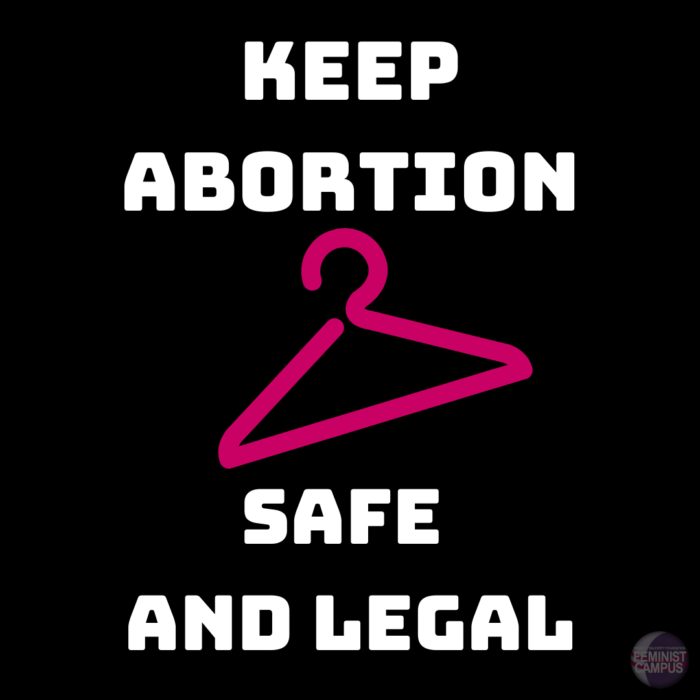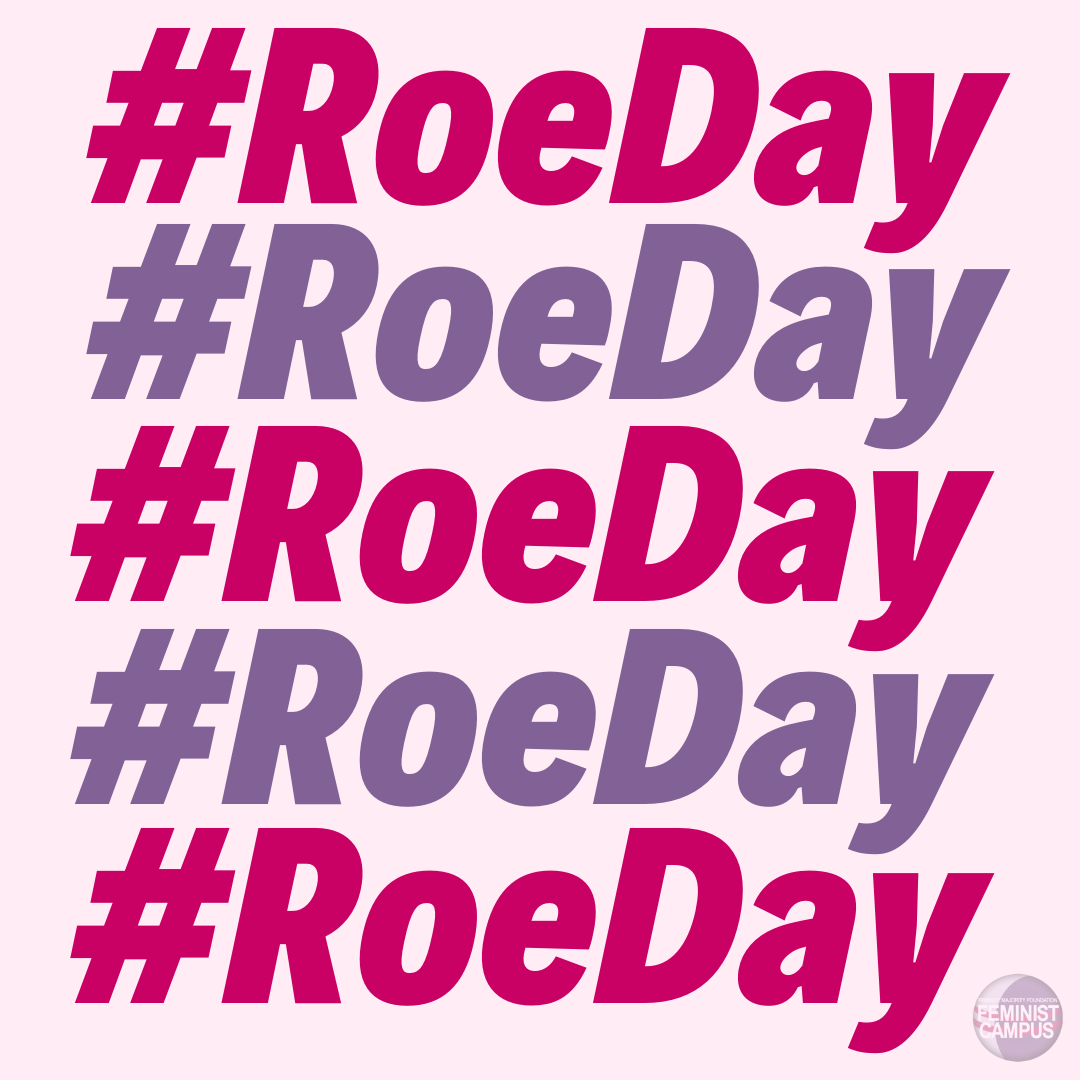
Throughout the long, and often frustrating, history of feminist activism, January 22, 1973 ranks at the top of the list of the most important days for women’s rights in the U.S. (competing with other critical dates such as August 18, 1920–happy suffrage centennial!) Because on this day in 1973, the United States Supreme Court made a landmark decision in the case of Roe v. Wade, 410 U.S. 113, in which the Court ruled that the U.S. Constitution, more specifically the Fourteenth Amendment, protects a pregnant individual’s right to choose whether or not to have an abortion without excessive government interference.
Roe v. Wade, also known as Jane Roe, et al. v. Henry Wade, District Attorney of Dallas County, was brought forth by a woman named Norma McCorvey who became pregnant with her third child in 1969 and was denied an abortion in her home state of Texas. This was due to the fact that at the time, Texas had made abortion illegal with exceptions only to save the life of the pregnant person. McCorvey decided to consult two feminist lawyers, Sarah Weddington and Linda Coffee, who then brought the case to U.S. federal court and argued that Texas’ abortion laws were unconstitutional and infringed upon McCorvey’s right to make independent decisions regarding her own body. The U.S. District Court for the Northern District of Texas ruled in favor of McCorvey before her case was then appealed to the U.S. Supreme Court. The Court ruled in favor of McCorvey again, grounding its 7-2 decision within the Due Process Clause of the Fourteenth Amendment to argue that a pregnant person has a right to privacy that in turn protects their right to independently decide whether or not to have an abortion.
This decision could not be made absolute without the Court finding a way to balance the government’s interests of protecting both a pregnant individual’s health and prenatal life. The result of this balance came in the form of a trimester system enforceable by the states. The breakdown of this system is as such:
- During the first trimester, state governments are unable to prohibit abortion for any reason,
- During the second trimester, state governments may require reasonable regulations regarding health, and
- In the third trimester, state governments are able to prohibit abortions entirely as long as the laws contain exceptions used to save the life and/or health of the pregnant person.

As feminists living in a post-Roe society, each day we are able to celebrate our right to choose and the reproductive freedoms that many brave individuals before us have fought tirelessly to attain. However, one day each year we are given the opportunity as a community to reflect on our wins, our losses, our struggles in between, and those we lost in the fight along the way. It is also important to remember that Roe has not been able to fully shield reproductive rights from those who only view pregnant people as vessels for new life. Tens of hundreds of laws exist only to infringe upon reproductive rights as stated in Roe, and sadly, patients, clinics, doctors, and advocates alike still face violence and harassment at the hands of those who have no right to make decisions for a pregnant individual and their body.
While it is important to reflect on the journey for reproductive rights before Roe and during the 47 years since, we must continue to be vigilant of the threats to abortion access ahead as the Supreme Court is set to take on its first major case regarding abortion rights since the confirmations of both Justices Neil Gorsuch and Brett Kavanaugh. With the fear of lost progress looming, many are calling to “protect Roe,” but this raises the question of whether or not “protecting Roe” is enough to protect abortion access as a whole. The Guttmacher Institute‘s Senior Policy Manager Megan K. Donovan argues that this idea of “protecting Roe” “fails to recognize what it will really take to overcome a decades-long coordinated campaign of anti-abortion policymaking and to ensure that abortion care is genuinely accessible to anyone who wants it.“
The upcoming Supreme Court case, June Medical Services LLC v. Gee, will challenge state-imposed restrictions intended to shut down clinics and deter abortion providers by requiring them to have admitting privileges at local hospitals. The case is set to be argued on March 4, 2020, with a decision likely to come sometime this summer. If the Court decides to strike down Louisiana’s anti-abortion law, it would be upholding the precedent designed to protect patients from being “denied to abortion providers for political reasons.” And in failing to do so, the Court would send the strong message that “constitutional rights are only as sacred as the whims of the changing court.“
While today we are able to celebrate the successes of and sacrifices made for Roe, the fight for reproductive justice and freedom does not end with simply “protecting Roe.” Roe v. Wade was an integral part in setting the foundation for modern reproductive rights, but the fight to protect abortion access is long from over. We must look to and encourage the mindfulness of the Supreme Court in order to ensure a future for reproductive rights, because when we have control over if and when we have children, we have more control over our lives.

